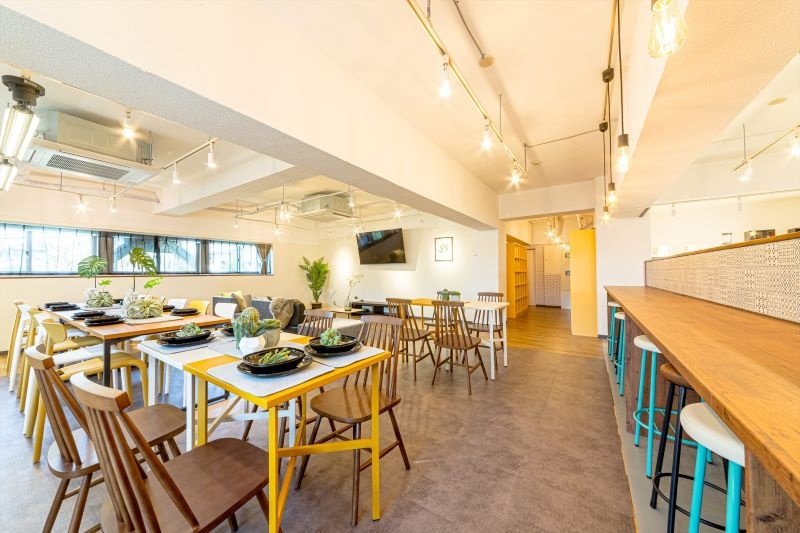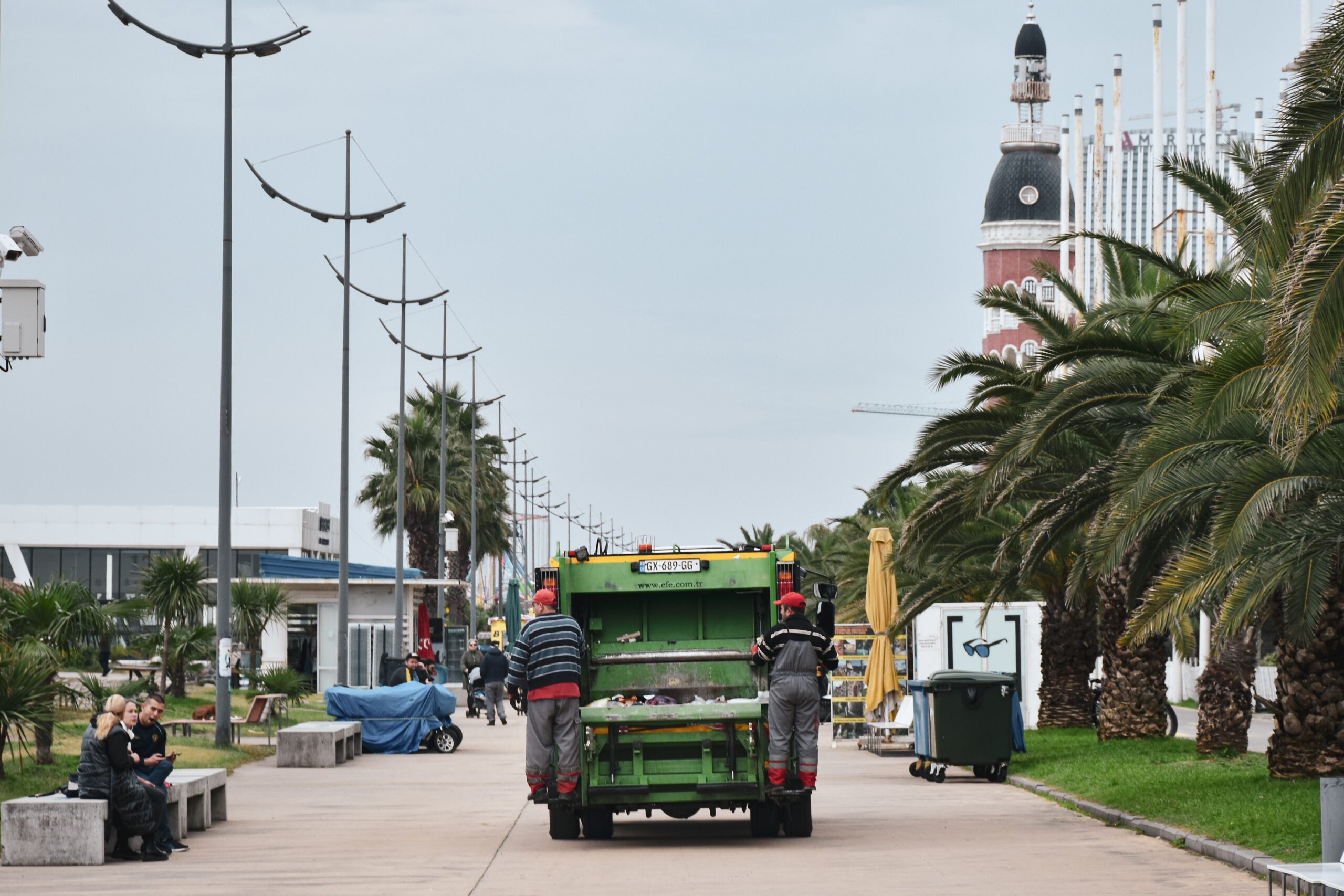Super excited but also unsure on how to prepare for your impending move to Japan? Drowning in so much information scattered throughout different articles on the internet and it is making things even more complicated than you initially thought it would be? Then jump in and let’s talk about this together!

You just received your Japanese work visa and you are over the moon because you’ve always wanted to live and work in this magical country while exploring unique shrines, delectable food, manga, anime, hot springs, and everything else you have dreamed of over the years. You might be wondering, “How can I prepare for my move to Japan? I have no clue what to do!” If you are pretty lost on what to do before you move, then I was exactly like you many years ago. I had to search on the Internet for tons of things I needed to prepare myself before the big transition but could only find 2-week travel itinerary guides and nothing for expats like myself. To make it easier for other foreigners aspiring to move to Japan, I wrote this guide to make it easier for you to get things settled and in order as smoothly as you can.
Housing
The first thing to consider before moving to a new country is, of course, accommodation. The two most common types of housing for foreigners in Japan are apartments and share houses. Depending on how long you plan to stay and what kind of lifestyle you have, it is best to do thorough research so you don’t regret your previous choices upon arrival.

Apartments are better if you are a homebody and if you mostly enjoy your own private space. The majority of expats live in apartments so this might be a good choice for you as well. Check out the link below for thousands of apartments you can choose from including some units that are already furnished with basic necessities such as a TV, bed, dining table, refrigerator, microwave, and washing machine. See this link for more.
*Acronyms to know- LDK- Living, Dining area, Kitchen (ex. 2 DK- 2 bedrooms, dining area and kitchen)
Pros: Gives you more privacy and generally includes all the amenities you need but in some cases, you have to set up the electricity, water, wifi with the utility companies by yourself.
Cons: Getting an apartment may have an initial cost of a minimum of 200,000 yen (1,400 USD). This includes deposits, key money or gift money (reikin), rent, cleaning fee, maintenance fee, and so on. You may need to be in Japan to sign all the documents needed although there have been cases that the real estate company or an authorized friend in Japan can set them up for you.

Share Houses are popular among students, people who plan to stay in Japan short term, or those who are outgoing and love having company at home. There are several shared houses all around the Kanto area. Here is a link that you can look into regarding this as well.
Pros: The rooms are fully furnished with a bed, desk, wardrobe, other types of furniture, and even at times your own refrigerator. You don’t need to pay a hefty amount and you can move out anytime. You mostly just have to pay for the first month’s rent plus utilities and you are good to go! In addition to that, it is easier to make friends and meet people who can give you advice on where to shop and answer questions about the neighborhood you’d like to know.
Cons: Number one would be the lack of privacy and since you are sharing all the public spaces such as the toilet, bathroom, kitchen, living room, and dining area, it could be quite chaotic and inconvenient. You need to have a lot of patience if you happen to be running late for work in the morning and your housemate is taking forever in the bathroom. There are certain house rules to abide by and housemates typically share chores that are assigned to each member accordingly, so if you don’t like following strict house rules, then this might not be a good choice for you.
For more information, don’t hesitate to check out this website to learn more.
Arriving in Japan
You just arrived at Narita/Haneda Airport after getting your new residence card and have just taken your luggage from the conveyor. On top of that, you have downloaded a Language Translation App (Google Translate is good enough) in case you need help from the locals. Now what?
1. Go to a Money Exchange Center
If you haven’t yet, make sure to exchange your money for yen as this will make the rest of the day much easier for you. If you have an international debit card, then you can also use the ATMs at the airport to withdraw some yen. Some stores accept credit cards but cash is generally preferred.

2. Get an IC card
The charging machines have several languages available so you can translate them to your language of choice. Buy an IC card (you can use this indefinitely from this point while traveling but make sure to always top up) and charge your card with the amount desired or needed with the minimum being 1,000 yen. There are two kinds of commuter passes you can choose from: PASMO (pink) and Suica (green). Click this link to learn more about train passes in Japan.
3. Download/use Hyperdia, other train apps, or Google
These apps will help you immensely in navigating through transfers at different stations across Tokyo or even Japan! Check your route going to your place of accommodation. Check out this blog to learn more about transportation in Tokyo.
(Optional: You can also use the Yamato Luggage delivery service if you have several large pieces of luggage. They will ship your luggage to your apartment within 1-3 days)
4. Buy a Travel Sim Card
There are temporary sim cards that can be used for up to 30 days which are being sold at the airport. I recommend purchasing this because it will be nearly impossible for you to survive without it during your first week. You can, later on, apply for a 2-year contract at one of the big telecommunication companies such as Softbank, Docomo, or Au when you have your employment contract and other Japanese identification cards ready. Other non-contract options such as JP SMART SIM, Mobal, and Sakura Mobile let you cancel your plan anytime without having to pay a penalty and payments can be made at your nearest convenience store. This article talks about phone plans in more detail so check it out!
5. Get some beddings and pillows to use for your first night
Assuming you have arrived at your apartment and you chose to have an unfurnished one, leave your stuff in your apartment and head out to a furniture store such as Nitori or Ikea as well as the closest supermarket and make sure to buy these must-haves:

• A futon set (make sure to get the set that includes all of the parts including the summer and winter blankets)
• Pillows, blankets, or your favorite Pokemon plushie.
• Ready-cooked meals or bentos for your first few meals in the country (if you don’t have a microwave or fridge yet)
• Hygiene products such as body wash, toothbrush, towels, shampoo, and more (got to use that tub for ofuro time after a 12-hour flight!)
6. Buy Furniture/Household Items
You can either buy these from large home stores like Viva Homes, D2, Ikea or Nitori, and even Donki. You can also order from their website and have them delivered to your home with an additional delivery cost.
Amazon is also a nice option and if you want all your items delivered the next day, Amazon Prime here is as fast as other countries in terms of delivery speed. Here are some links to comprehensive guides on buying cheap furniture and essential equipment for your new place.
Another option is Second Hand Shops known as Recycling Stores in Japan. Their thrifted products are a lot cheaper but mostly don’t come with a warranty so make sure the product is working before fully purchasing it. They have everything you need from clothes, sofas, and vacuum cleaners to running shoes!
If you need small items like decorations for your house, indoor slippers, or some school supplies then just go to a 100-yen shop such as Daiso, Seria, CanDo, Threppy, or 3 coins. They sell almost everything you need on a daily basis and you can find them almost anywhere!
7. Call the Utility companies and get everything running
Most apartments in Japan require the tenant to set up basic utilities such as wifi, electricity, gas, and water. However, in some cases, the landlord could set this up for you. This is pretty uncommon though so just be prepared. It usually doesn’t take longer than 30 minutes for each of them to be in full functionality, so you can have all of them done on the same day. That is exactly what I did and it went very smoothly. This article will help you in setting up your wifi at home.
8. Go to the City Hall nearest your area
This is very important and it is recommended that you visit the city hall as soon as possible, possibly the following day after arriving in Japan. Sing up to get your Stamp (Hanko) as you will be required to use this in a lot of forms or documents in Japan. This basically acts as your signature so make sure you have your name in Katakana spelled correctly.
Register your address and submit a copy of your residence card as well as your passport as proof and other supporting documents they may require of you. Ask for a copy of your Juuminhyou (residential registration certificate) as well because it is one of the most important requirements when applying for phone contracts and your company may ask for this document from you as well. Immigration will also need this document for visa renewal applications so make sure to have your copy securely kept at home.
Ask for a copy of the Garbage Collection Pamphlet because there are usually different days on which a specific type of garbage is collected. Japan is big on recycling and proper segregation and oftentimes, the city has its own designated plastic bag for different types of garbage such as burnable, non-burnable, electronics, clothing, glass, and so on. Also, be familiar with the evacuation center in case of natural calamities such as earthquakes, big typhoons, and hurricanes. To learn more about garbage segregation, make sure to click this link.

9. Open a Bank Account
There are several banks you can open an account with such as MUFG, SMBC, Resona, Mizuho, and many more. Most Foreigners opt for Japan Post because it is the easiest for bank transfers and there are branches and ATMs in almost every station. It is also a post office so if you need to deposit or withdraw money and send a parcel at the same time, then it is very easy, quick, and convenient. You will need your Stamp (Hanko), residence card, and passport for the application.
Learn more here.
10. Give omiyage (souvenir) to your neighbors/ new coworkers
Omiyage is a type of gift offering that Japanese commonly give to friends or colleagues after traveling somewhere or if they are newly hired employees of the company. This can range from crackers, rice cakes, to traditional finger food.
If you are living in an apartment, this is not enforced but it is still a nice gesture to do once you move in. My rule of thumb is to give the people in the 2 units next to my apartment and the one underneath mine. That is because moving can be quite disruptive to a lot of people and scrambling furniture and other large objects around the place can be bothersome and extremely noisy.
So that’s it! I hope I have covered enough of the most important errands you need to run as soon as you arrive in Japan! It may seem daunting to read all of this and you may wonder if you are capable of accomplishing all of these by yourself with your limited Japanese, but I can assure you that it isn’t really as hard as it may sound. Just be prepared to have your Google Translate ready, your card or money in hand, your residence card in your wallet, your needed paperwork, and your commuter pass topped up at all times. You should also consider getting a bicycle too because trust me, it will make your life a lot easier!
There are plenty more that you may need to do depending on your situation, the area you live or the job you have been offered but not to worry because Japanese people are generally very kind and helpful so don’t be scared to ask. Enjoy the journey, decorate your new home, go to the nearest izakaya, go hiking in the summer, and go skiing in winter. Savor every moment you are here in this wonderful country be it for leisure, work, or studies and most of all, have fun!



